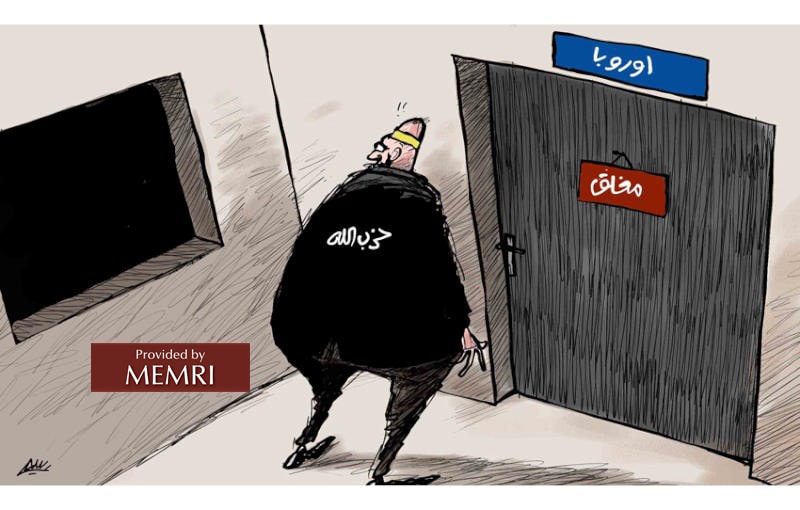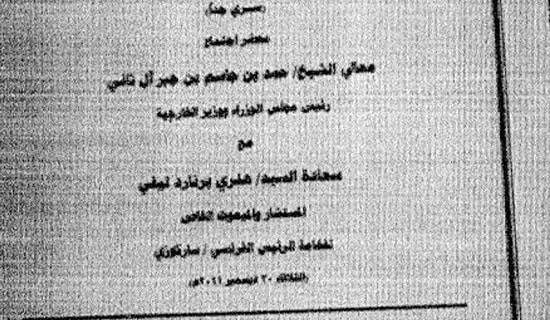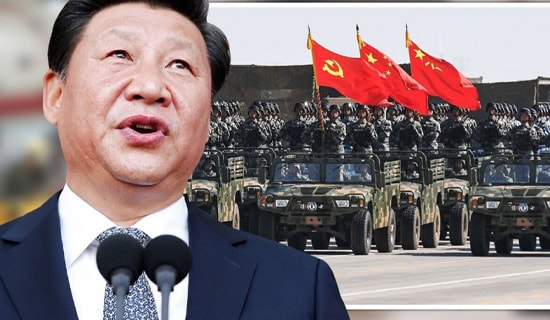On April 30, 2020, Germany's Interior Ministry announced that it had "banned all activities by the Shi'ite terrorist organization Hizbullah in Germany."[1] Responding to this news, Mashari Al-Dhaidi, a columnist for the London-based Saudi daily Al-Shaqrq Al-Awsat, wrote that Germany was late taking this decision, for it has known for decades about the activities of this organization, and of its patron Iran, in Germany and in the rest of Europe, which include assassinations, the manufacture of explosives, drug trafficking and money laundering. He also criticized the silence of the other European countries, who he said continue to turn a blind eye to Iran's and Hizbullah's crimes.

Europe closes the door to Hizbullah, but the window remains wide open (Al-Sharq Al-Awsat, London, May 2, 2020)
The following are translated excerpts from Al-Dhaidi's article:[2]
"The [interesting] story is not that Germany has designated the Lebanese Hizbullah as a terrorist organization, and has banned its activity in its territory as well as membership in it. The [interesting] point is the question: Why did Germany take so long? And who are the other European countries that are still delusional and have not yet seen the dark and criminal face of this international network that specializes in terror, assassinations, boobytrapping and explosive devices, money laundering, drug trafficking and collaboration with other terrorist organizations such as Al-Qaeda?!
SUPPORT OUR WORK

"The European silence over Iran's terrorist activity, [conducted] by means of its Lebanese proxy Hizbullah or directly by means of the [Islamic] Revolutionary Guards Corps [IRGC], despite decisive evidence of the involvement of these Iranian networks in assassinations and in the bombing of crowded [targets], is extremely puzzling, especially considering that the IRGC insisted on carrying out these activities against an Iranian opposition organization in Belgium and France. [3]
"In the era of [former U.S. president] Barack Obama, whose departure is not to be lamented, this disregard [of the Iranian activity] was understandable, since no condemnation would have kept the great genius Obama from making the poisoned [nuclear] deal with the Khomeini regime, and his European allies joined him in the wild-eyed [position] that advocates openness towards this regime.
"The information, or [at least] some of the information, exposed by the German security [services] regarding the Lebanese Hizballah's activity on [German] soil is astonishing, including the information about several Shi'ite businessmen who used their trade activity to launder money and transferred hundreds of millions of euros into the bank accounts of this Lebanese organization, some of which was used to finance the activity of Hizbullah cells that operated across Germany. Berlin even discovered a secret warehouse in a city in southern Germany where the organization hid hundreds of kilos of ammonium nitrate, used to manufacture explosives.
"Germany has been an important hub, not just for the Lebanese Hizbullah but for the Arab and Turkish Muslim Brotherhood organizations, for decades. Does Germany's [banning of Hizbullah] mean that the moment of awakening has arrived, or is this an isolated decisive step that does not herald a West-European uprising against the addiction to sleeping with the devil?"
[1] Bmi.bund.de/, 30.4.2020.
[2] Al-Sharq Al-Awsat (London), May 4, 2020.
[3] Apparently a reference to an Iranian plan to bomb a June 18, 2018 rally of the Iranian opposition movement Mujahideen Al-Khalq in Paris, which was thwarted with the help of the Israeli Mossad. Some of the figures involved in this affair were Belgian citizens, arrested in Belgium in July 2018.




